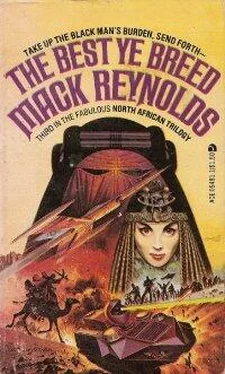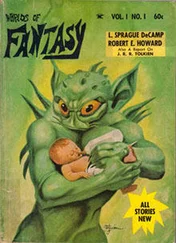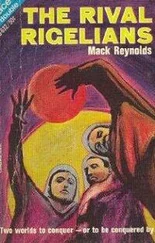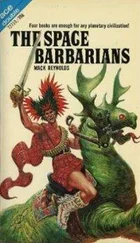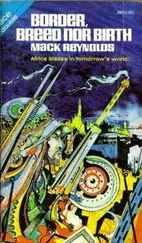Mack Reynolds - The Best Ye Breed
Здесь есть возможность читать онлайн «Mack Reynolds - The Best Ye Breed» весь текст электронной книги совершенно бесплатно (целиком полную версию без сокращений). В некоторых случаях можно слушать аудио, скачать через торрент в формате fb2 и присутствует краткое содержание. Год выпуска: 1978, ISBN: 1978, Издательство: Ace Books, Жанр: Фантастика и фэнтези, на английском языке. Описание произведения, (предисловие) а так же отзывы посетителей доступны на портале библиотеки ЛибКат.
- Название:The Best Ye Breed
- Автор:
- Издательство:Ace Books
- Жанр:
- Год:1978
- ISBN:0-441-05481-1
- Рейтинг книги:4 / 5. Голосов: 1
-
Избранное:Добавить в избранное
- Отзывы:
-
Ваша оценка:
- 80
- 1
- 2
- 3
- 4
- 5
The Best Ye Breed: краткое содержание, описание и аннотация
Предлагаем к чтению аннотацию, описание, краткое содержание или предисловие (зависит от того, что написал сам автор книги «The Best Ye Breed»). Если вы не нашли необходимую информацию о книге — напишите в комментариях, мы постараемся отыскать её.
The Best Ye Breed — читать онлайн бесплатно полную книгу (весь текст) целиком
Ниже представлен текст книги, разбитый по страницам. Система сохранения места последней прочитанной страницы, позволяет с удобством читать онлайн бесплатно книгу «The Best Ye Breed», без необходимости каждый раз заново искать на чём Вы остановились. Поставьте закладку, и сможете в любой момент перейти на страницу, на которой закончили чтение.
Интервал:
Закладка:
And now it came to a head. In a final desperate frenzy, they were charging again, and this time, one of the armored cars gingerly edged its snoot around the bend in the wadi. Bey, who was himself manning the flac rifle, winged a couple of shots at it, deliberately aimed to bounce off the side. He didn’t want to destroy the vehicle. The forces of El Hassan could utilize it to advantage, later. It took the message and hurriedly backed up around the wadi bend.
This time, the full force of the remaining infantrymen were charging, wild-eyed. A last desperate attempt to break out, and, for a moment, Bey wondered at his ability to hold them. A flac rifle, no matter how universal, held but a twenty-round clip, and wasn’t meant to be utilized against individual foes. It was meant for tanks, armored cars, machine gun nests, pillboxes, foes intrenched in buildings, even aircraft under certain conditions, but not hundreds of frantic charging infantrymen. The two machine guns flanking him, mowed down the attackers, but they continued to advance, on the run.
One of his machine guns fell silent. The gunner had obviously been hit by one of the random shots being fired by the advancing elements. It soon started up again, as one of the others took over, but less accurately now.
The frantically charging enemy had nearly reached Bey’s emplacements when from behind came the pounding of hundreds of the pads of hejin racing camels, the sound of the ululating war cry of the desert, Ul-Ul-Ul-Allah Akbar!
He swung his eyes about from the Arab Union soldiers who had only yards to go to reach his gun’s nest.
Behind him, up the wadi, at full tilt, swarmed the Camel Corps of Guémama, war chief of the Kel Rela clan of the Tuaghi. Some shook modern rifles at the skies, some ancient long barreled muzzle-loaders, some brandished the Tuareg, Crusader-like broadswords, with their two edges, their round points and their flat, rectangular cross members. Some were armed only with long bladed spears, though all had strapped to their left arms the traditional razor sharp arm daggers of the Tuareg.
“Sweet Jesus,” Bey groaned at the sight.
Some of the Arab Union troopers were near enough that Bey could make out their bugging eyes. It was the end. They dropped rifles and submachine guns, turned, yelling their fear, and ran, some of them with arms held high.
Bey jumped to his feet and to the middle of the wadi and held up his arms, in desperation. He had little real hope of preventing the massacre. In fact, he was in considerable danger of being trampled to death.
Guémama himself, a submachine gun held high in one hand, led the charge. His face was a mask of excitement but at least he wasn’t frothing at the mouth as were some of those behind him.
To Bey’s relief and actual surprise, the young chieftain came to a halt, only a few yards before him and held up an arm to restrain his rampaging followers.
“Why do you halt us, O Bey-ag-Akhamouk! Insh’Allah , we shall slay all these Arab Union giaours , may they burn in Gehennum!”
The others were shrilling their war cries behind him, shaking their weapons, firing their rifles into the air, in anticipation.
Bey said, keeping his voice impossibly even, “I have heard from El Hassan on the Roumi device which allows one to talk at great distance. He desires that all the remaining dogs be spared, until he can put them to the question and learn greatly of what goes on to the north.”
The Tuareg scowled but the orders were from El Hassan himself and they made considerable sense. Besides, what could be more pleasurable than to herd the pigs of the Arab Union back to Tamanrasset to be put to the torture at leisure?
He held up an arm again and shouted to his men in Tamaheg, the Berber language of the Tuaghi.
Bey, disguising inward relief said, “Let your men go forth then, and relieve the remaining dogs of any weapons they may still retain, though seemingly they, in their great cowardice, have thrown them away. Round them up and put them under guard.” He laughed contemptuously, as was expected by the tribesmen and said, “Few guards will be necessary. Women could guard them. Put the rest of your men to gathering up their weapons and put them in the lorries which they have abandoned. Do not kill the wounded you find, especially the officers. El Hassan wishes to question them all. Put those among the dogs who understand how to drive the Roumi vehicles to the task and escort them back to Tamanrasset with the loot.”
“ Bilhana! with joy,” Guémama blurted and though obviously disappointed at not being able to conduct the slaughter which he’d had in mind, turned and shouted orders to his men.
He struck his hejin camel with his mish’ab camel stick and barked in command, “ Adar-ya-yan ,” to bring it to its knees. The camel went through its awkward, rocking motion and subsided to the sands.
The young warrior jumped to the sands, his face in great glee. He was dressed in standard Tuareg garb; baggy trousers of dark indigo-blue cotton cloth, a loose, nightgown-like white cotton shirt and over this a gandoura outer garment. On his feet were red leather fil fil boots and over his head and face the teguelmoust, the lightweight cotton combination veil and turban. It was indigo blue and some ten feet long and a Tuareg man was never seen without it, for the Tuareg, unlike the other tribesmen of the desert, go veiled, while the women are veilless. Traditionally, it is to protect their complexions from the sun, since the Tuareg considers himself a white man, though as a whole they are as dark as the Belas whom they enslave.
“ Wallahi ! O Bey-ag-Akhamouk,” Guémama chortled. “ Bismillah ! Thus it should be! These are the last of the Arab Union dogs to be rounded up.” Next to El Hassan himself, whom the Tuaghi chieftain worshipped, Bey-ag-Akamouk was his favorite among the new leaders of the tribesmen of North Africa.
Bey-ag-Akhamouk clapped him on the shoulders, with both hands in an American gesture, usually not acceptable to a Surgu noble, but now, in the full glow of victory, received with a triumphant laugh.
Kenny Ballalou came up, dragging a .10 caliber Tommy-Noiseless by its sling and followed by a Teda tribesman with his flac rifle. He looked, and was, exhausted. He still wore bandages from the wounds he had taken at Fort Laperrine.
He said, in English, “What the hell happened?”
And Bey said, in Tamaheg, for the benefit of Guémamaa, “They attempted a final desperate charge in effort to break out. Guémama with his valiant warriors arrived at the last moment, and the cowardly Arab Union dogs broke and ran.” Kenny had just passed through the portion of the wadi that had been cordoned off, so Bey added, “How many of them are left?”
“About two hundred unwounded and walking wounded,” Kenny cleared his throat and looked at Bey. “The boys seem to be polishing off those hit so badly that they can’t stand.”
Bey turned to the Tuareg and said, “It was the wish of El Hassan to return to Tamanrasset with all the captured. See what you can do, O Mokkadam of men.”
Without further words, Guémama was back onto his camel and off up the wadi.
Approaching them, his face wan and his once beautifully tailored uniform torn and disheveled, was Colonel Midran Ibrahim, his hands tied behind his back and escorted by two of the veiled camel corps men. Neither of the two Americans had ever seen the Egyptian officer before, but they recognized him through his insignia.
Without words, Bey went behind the other, reached out and drew the arm dagger from the sheath of one of the Tuaregs. The tribesman made no motion to resist the taking of his weapon, assuming that his commander was about to use it to the best advantage on the colonel.
Читать дальшеИнтервал:
Закладка:
Похожие книги на «The Best Ye Breed»
Представляем Вашему вниманию похожие книги на «The Best Ye Breed» списком для выбора. Мы отобрали схожую по названию и смыслу литературу в надежде предоставить читателям больше вариантов отыскать новые, интересные, ещё непрочитанные произведения.
Обсуждение, отзывы о книге «The Best Ye Breed» и просто собственные мнения читателей. Оставьте ваши комментарии, напишите, что Вы думаете о произведении, его смысле или главных героях. Укажите что конкретно понравилось, а что нет, и почему Вы так считаете.
